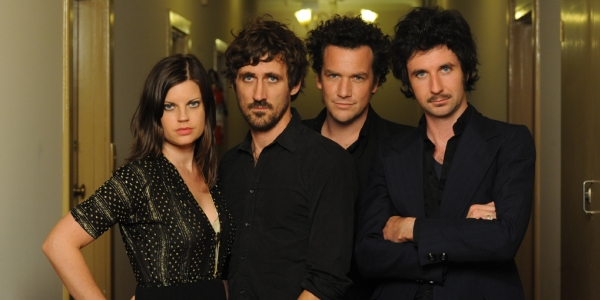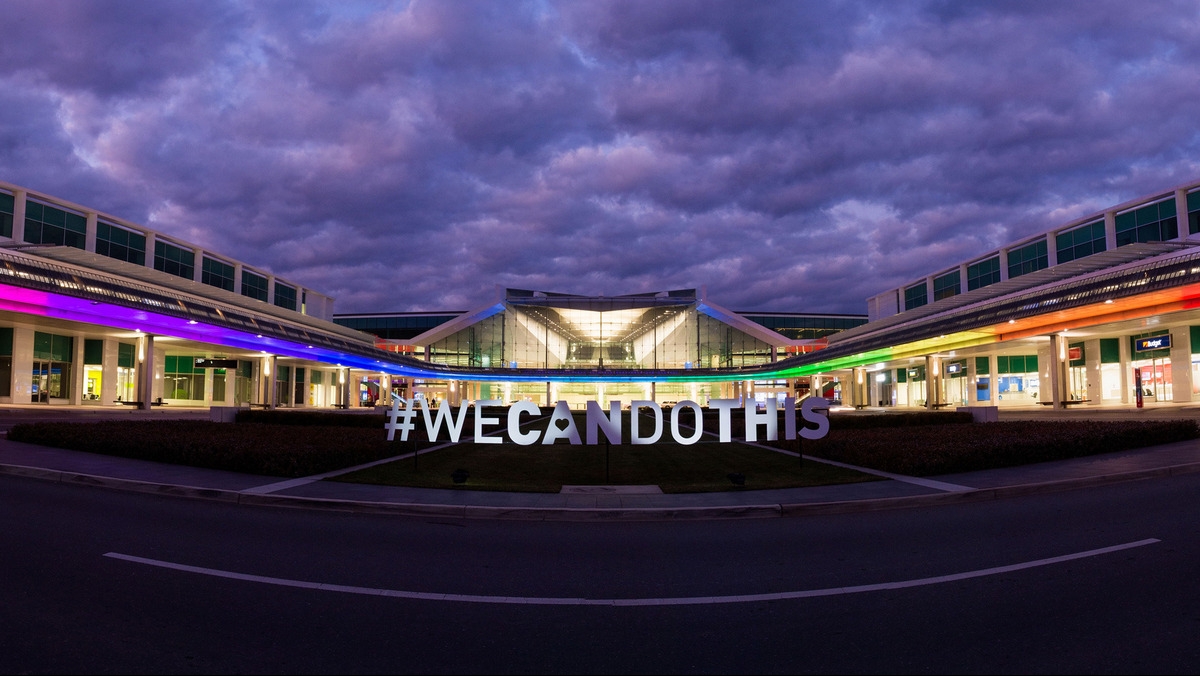“They were designed to explode,” Liddiard says. “They’re meant to get ya. There’s an anarchic quality – all the nuts and bolts are shaking loose and we’re picking up speed as we’re going downhill. But then it’s also depressing, and it’s wilfully depressing and it’s sort of nihilistic. Bringing the shit vibes, the depressing vibes to a bunch of Saturday nighters, it’s kind of funny. It’s shoving people’s nose in it and it’s funny.”
The Drones will celebrate the ten year anniversary with a national retrospective tour, starting this weekend. Though, the shows won’t exclusively be a Wait Long By The River re-tread. Back in May, the band debuted one new song at the Sydney Opera House, and Liddiard promises more new material at the upcoming Victorian shows.
“[The new album] is all finished. It’s mastered and it’s ready to go,” he says. “We’re just trying to shop it overseas – trying to find someone either dumb enough or smart enough to put it out. It might come out at the end of the year or the beginning of next year, just depending on what the Northern Hemisphere does about it.”
Over the last decade, the lineup of The Drones has undergone a series of alterations. Not long after Wait Long By The River, drummer Chris Strybosch and guitarist Rui Pereira were replaced by Mike Noga and Dan Luscombe, respectively; ahead of 2013’s I See Seaweed, long time contributor, keyboardist Steve Hesketh acquired full member status; and in the lead up to the forthcoming LP, Strybosch re-joined. Adapting to personnel changes is always challenging, but Liddiard’s never feared the band would stop feeling like The Drones.
“With Chris coming back in the band, he was already a Drone, so yeah. Otherwise, everybody else… their contributions are huge, but it’s when you take me out of the picture, it wouldn’t sound like that anymore. So as long as I’m doing it, it’s going to sound that way.
“We’ve been around for 15 years and that’s been useful to a degree that those changes have come and gone. The climate overall is the same, but the internal weather has changed and that’s cool because each album is different, so it’s made it interesting. Otherwise we would be like AC/DC or the Ramones, where it’s just the same shit over and over.”
It’s hard to deny that Liddiard’s presence is what secures the band’s identity. In light of this, there’s a lot riding on his application to songwriting. But, although the band’s sitting on the cusp of album number seven – and he’s also responsible for the 2010 solo LP Strange Tourist – songwriting hasn’t become a straightforward endeavour.
“What you’re doing is… there’s nothing there,” he says. “There’s silence and a blank page and you’ve got to change that, and it’s a big job. It’s like the big bang at the start of the universe: how the fuck do you make that happen, and what makes it happen? But after it’s happened you’ve suddenly got all the material you need to finish it off.
“I’m forever going, ‘Fuck. This is shit.’ But you’ve just got to keep doing it. Your self-esteem gets a hammering, because everything starts out as a piece of crap and you’ve desperately got to fix that. It’s horrible. Being a musician is a problem-solving thing always, because basically the music you’re generating is shit and you’ve got to solve that problem. Your ego takes a beating, because you are basing your sense of self on it. And if you’re not, you’re probably not that good at it.”
The fact that writing songs is so closely entwined with his sense of self is a major factor that drives Liddiard to keep working hard. “You’re putting yourself on the line and it’s the way you feel. You’re putting your personality out there – a little clone of yourself almost – so you do care that it’s received reasonably well. That is what will make it good too, because if the stakes were lower – if it was just about money or getting laid – it wouldn’t push you that hard. But when your sense of self is at stake you tend to work pretty hard.”
Since the very beginning, Liddiard’s go-to songwriting accomplice has been the guitar. To be expected, his relationship with the instrument is fairly volatile. “Certain aspects of it I come to hate as years go on. If you just get an open E-chord and go [makes strumming sound], it just fucking annoys me, because it’s just so hackneyed, it’s so clichéd, it’s been done to death. And fair enough, that’s what happens. Everyone has their day – Stravinsky had his day, Charlie Parker, Miles Davis…”
Indeed, the downfall of the ‘guitar band era’ has been widely anticipated for a number of years. This prophecy could be a major concern for a songwriter that relies so heavily on guitars. However, Liddiard understands you’ve got to keep pushing the boundaries and finding new ways to manipulate the instrument.
“You can always find something else to do with a guitar,” he says. “With our new album, it’s covered in guitars but you’d never know. You’d be like, ‘Wow is that a guitar? That’s amazing.’ It’s pretty out there. Dan was feeling the same, like ‘Guitars are just old hat.’ So we had to reinvent them, and it’s doable.”
Meanwhile, Liddiard’s not oblivious to the innumerable contemporary guitar wielders who’re doing very little to advance the form. “Imagine walking into a fucking taxidermist shop and thinking you’re in the jungle. That’s kind of what bands these days are like. They don’t realise that once upon a time someone like Jimi Hendrix or Mark E. Smith– people were actually making this shit up. Say the ‘80s is back and everyone loves the ‘80s, well if you like Joy Division and PiL and all that shit, the thing to do is not copy them, because they weren’t copying anybody. If you copy them you couldn’t be further away from what they are.”
These might sound like the words of a jaded old rocker, lamenting the extinction of truly interesting artistic innovators. But rest assured, Liddiard’s not stuck in a nostalgic bubble.
“There’s cool bands, like Deerhoof,” he says. “There’s good electronic shit. Hip hop is just off the hook. That’s in a golden period. Everyone says it was the Public Enemy years, but it’s still fucking peaking. It’s amazing. There’s stuff like Madvillain and Sensational. Even really popular shit, like that guy that sounds weirdly like James Brown [Kendrick Lamar] – that’s amazing and that’s taking so much from the past. It’s a huge James Brown rip off, but he’s doing the right thing. He gets what’s going on.”
Liddiard is evidently a fierce opponent of lazy reprisal – an indulgence that’s symptomatic of complacency – which brings us back to the upcoming retrospective tour. Did he have any scruples it’d seem like a nostalgic victory lap?
“The Wait Long thing was serendipity. We got all the licenses back from all of our records – coincidentally all at once in the last year, from all different labels – so we had to reissue everything. Wait Long had never come out on vinyl, so it was obvious that we should do that. Then Chris came back into the band and he plays on Wait Long, so that made sense. Then the tour that’s booked was going to be our new album tour, but we’re still shopping it overseas, so we thought ‘Let’s do this.’
“It’s going to be really fresh. Because we have been sitting around in a recording studio scratching our heads with all sorts of weird gear, it’s actually really nice to plug some guitars into some amps and just go ‘boing’. When we started rehearsing for that Sydney Opera House thing it was like ‘Thank fuck. This is actually really fun’.”
BY AUGUSTUS WELBY







